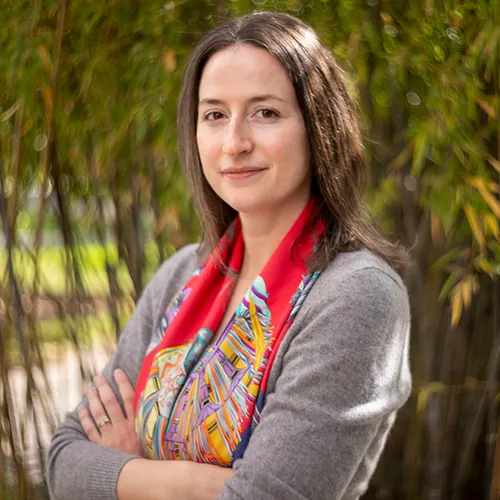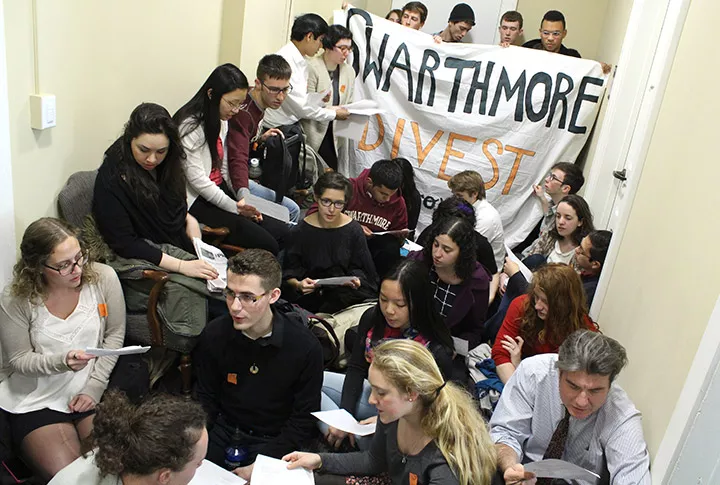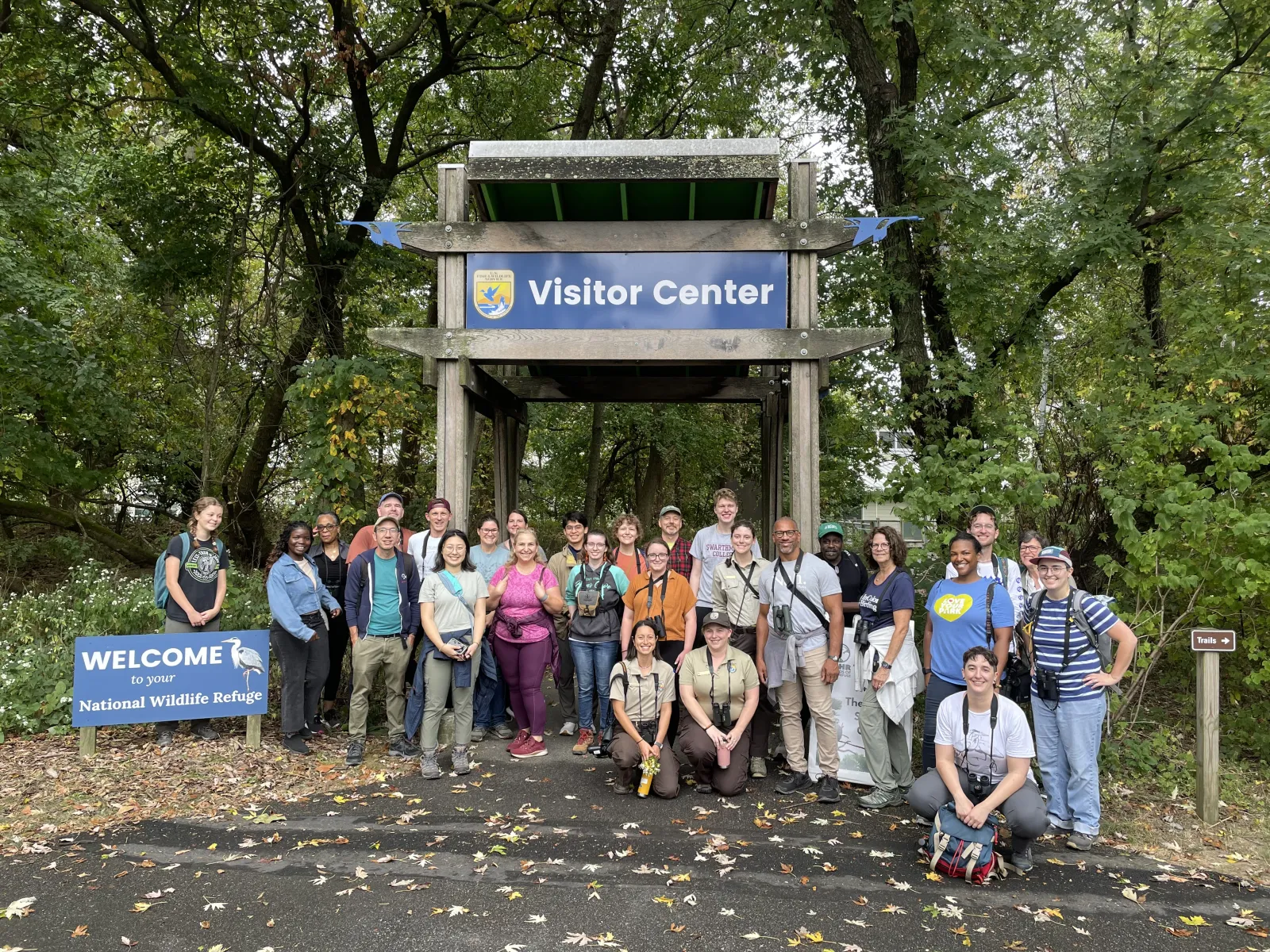
Bird walk with Christian Cooper at the John Heinz National Wildlife Refuge
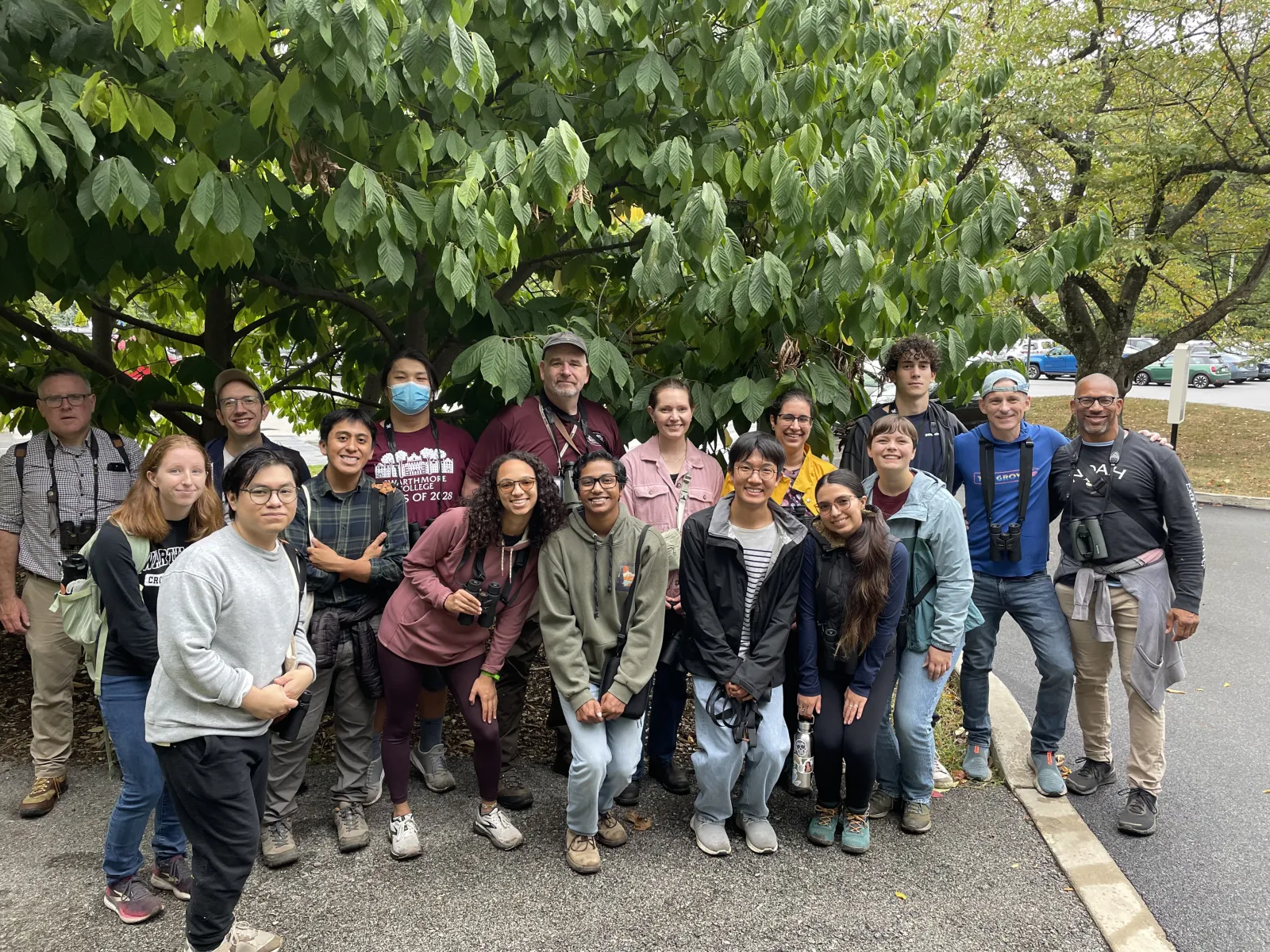
Birdwalk with Christian Cooper Crum Creek
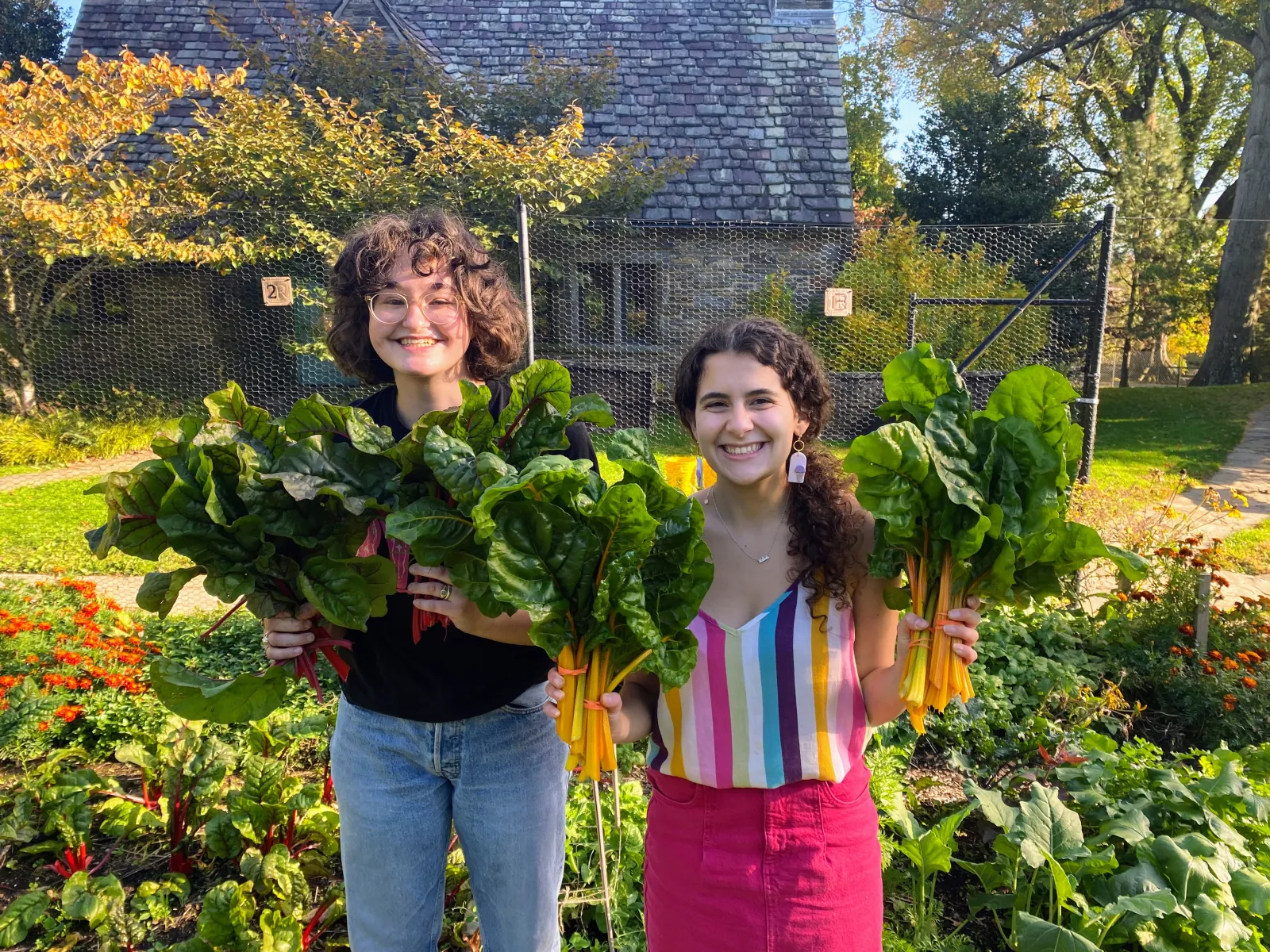
Harvest time at Our Food Garden
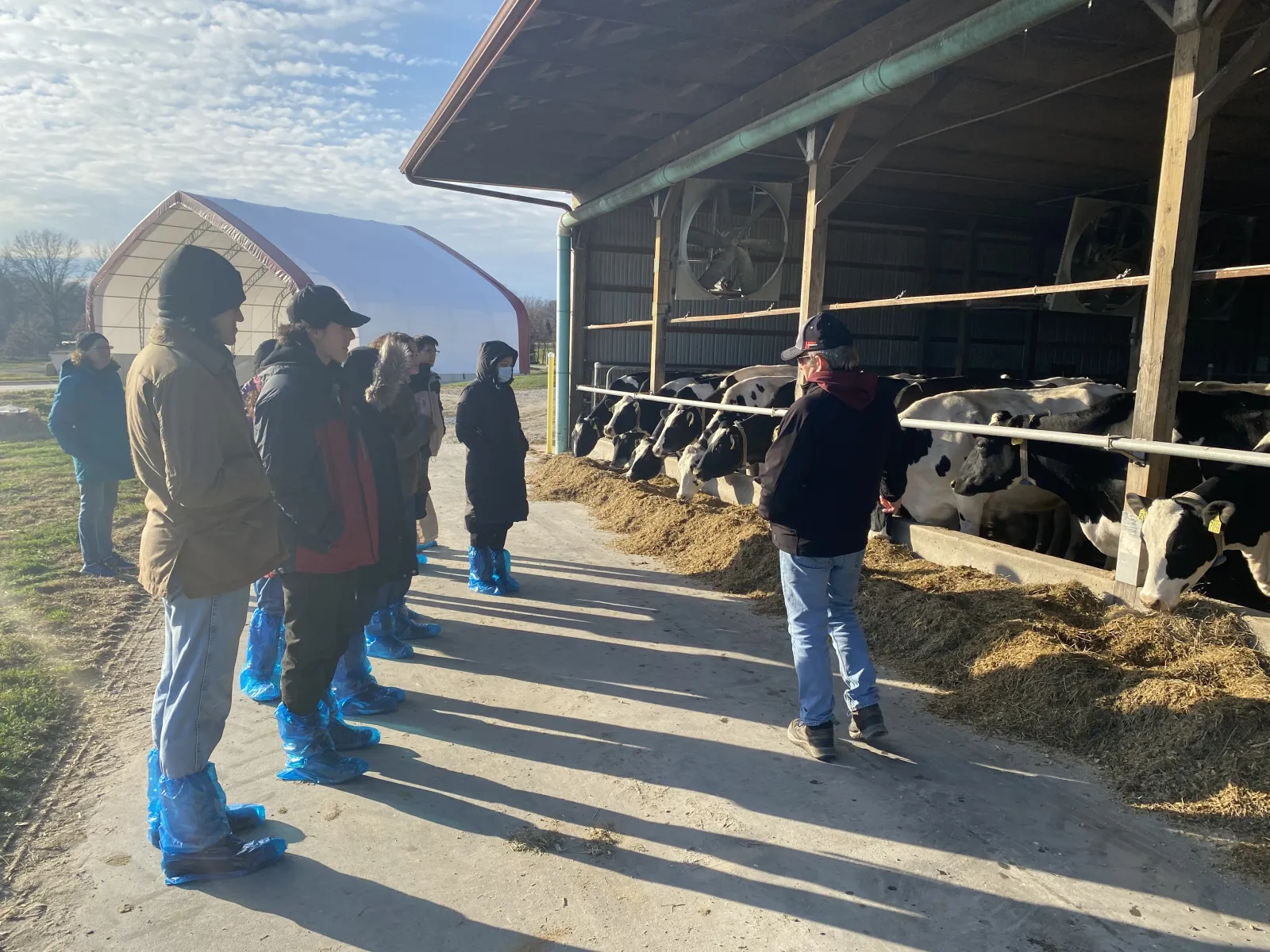
ENVS 009 visiting Walmoore Holsteins Farm
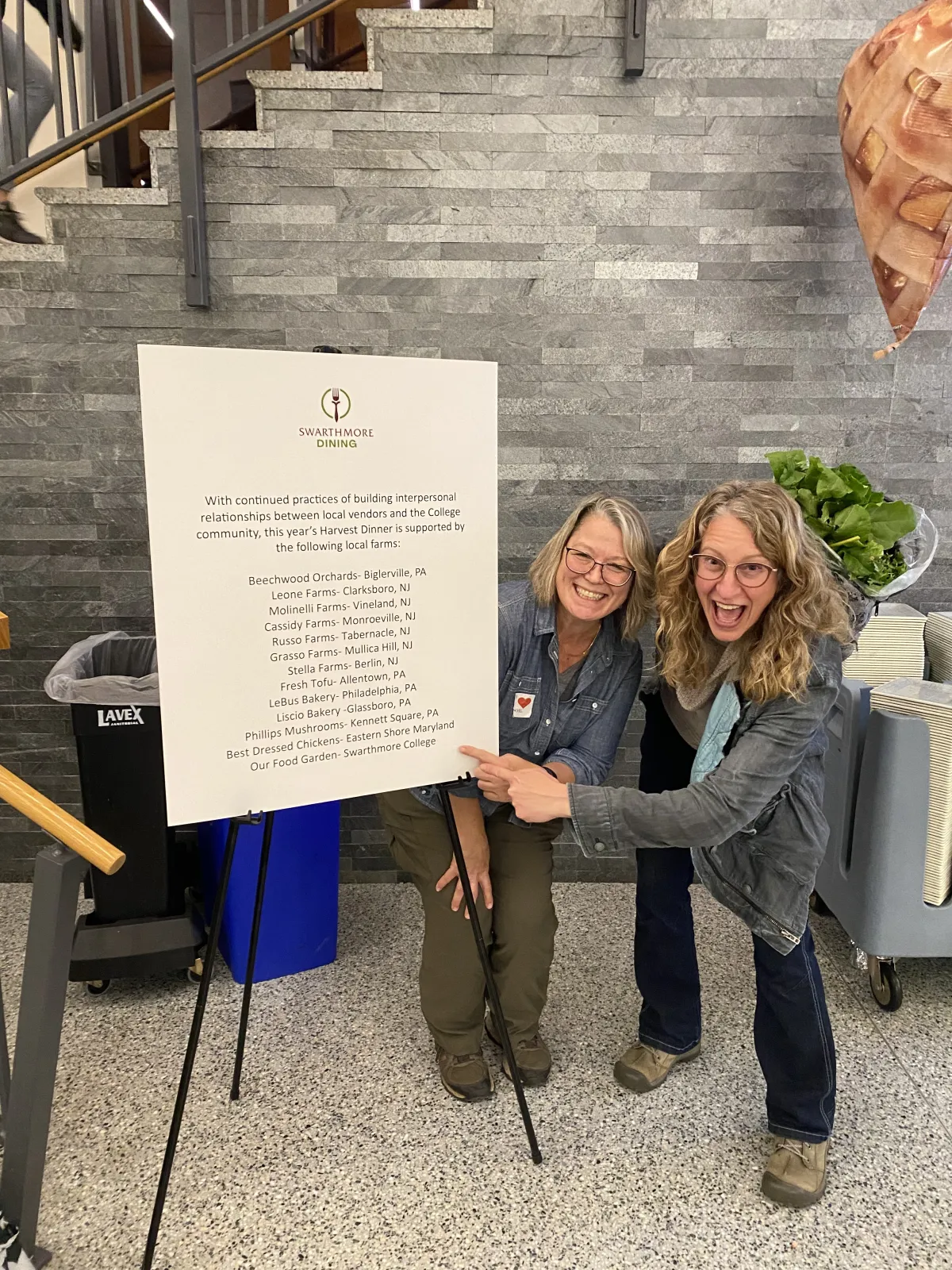
Professor Jennifer Pfluger and Green House and Garden Manager Rhonda Hilt. "Our Food " Garden was featured as one of the local farms supporting the Harvest Dinner.
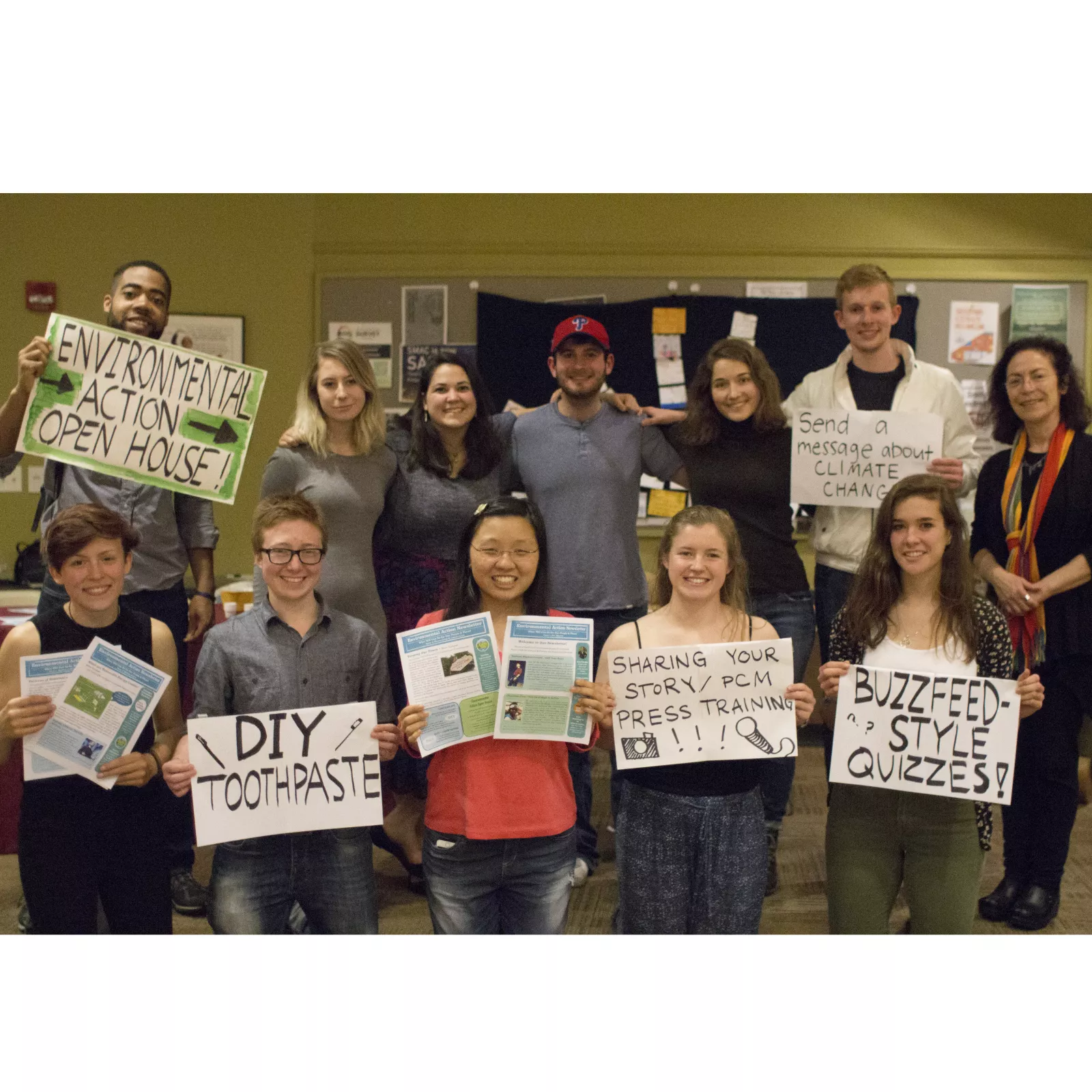
The Hope and Action Capstone students and Professor Di Chiro had an open house organized with many booths offering interactive activities to engage students about climate change and to prepare for the People's Climate March in DC in April.
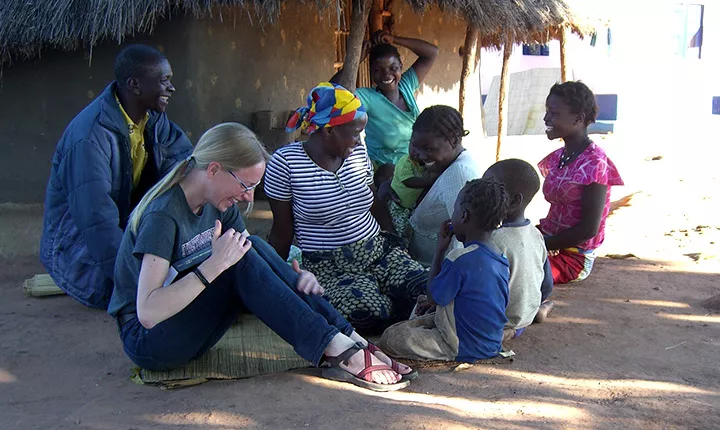
Anthropologist Christy Schuetze visits a spirit medium with whom she's been working since 2001.
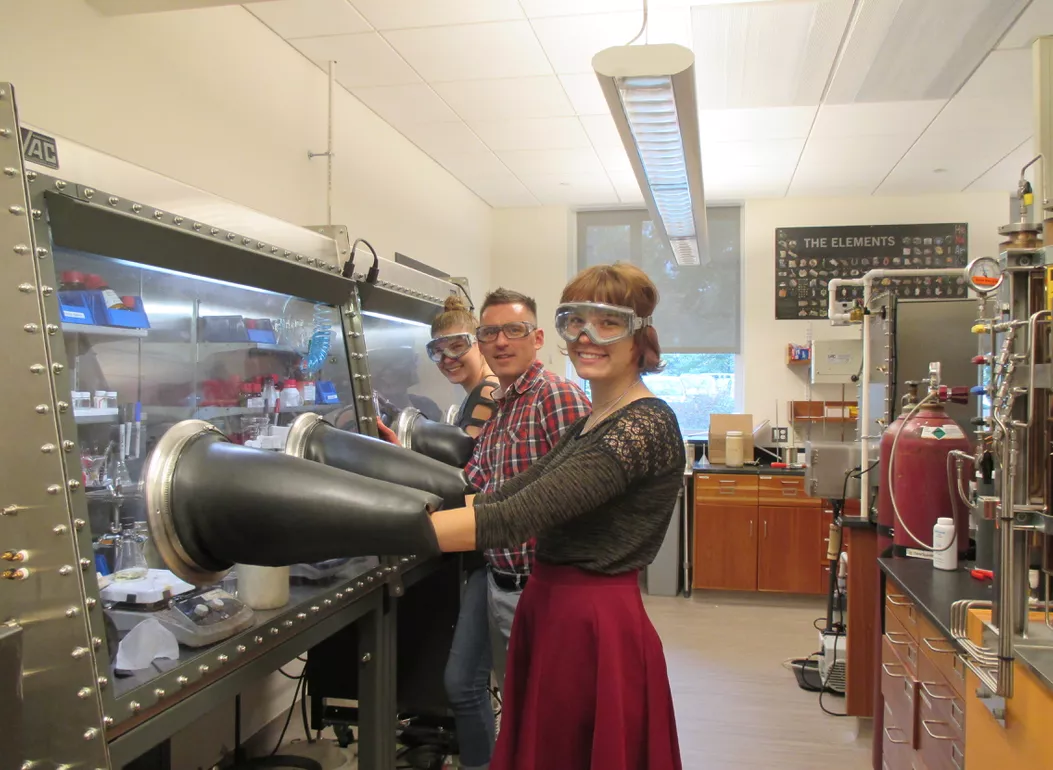
Chemistry and Environmental Studies Professor Chris Graves designs aluminum compounds for development of more sustainable catalytic processes.
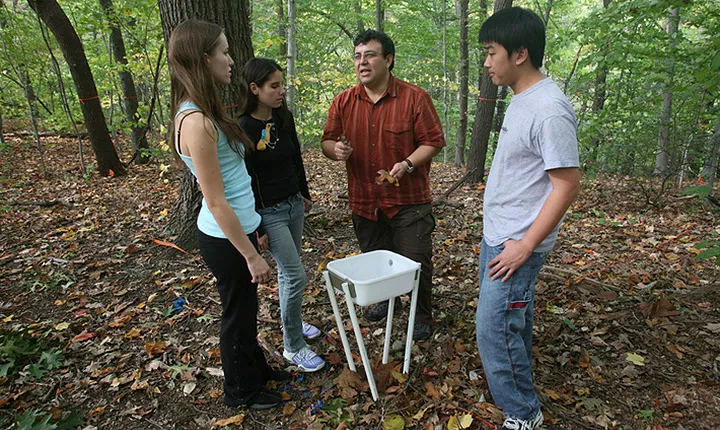
Ecologist José-Luis Machado engages his students in the Crum woods next to campus.
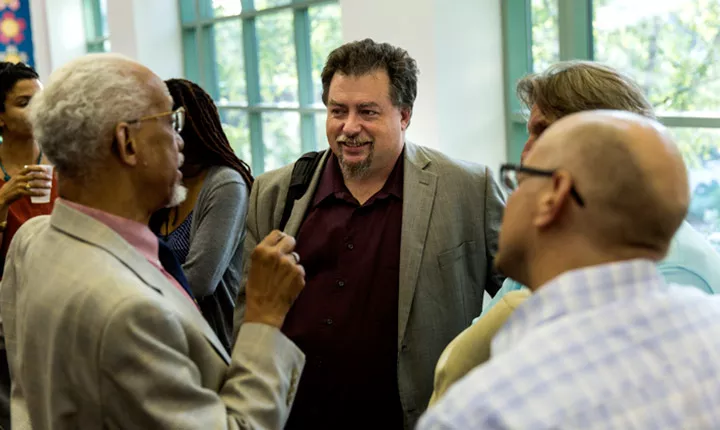
Historian Tim Burke teaches the Environmental History of Africa while more broadly considering possibilities inherent in digital humanities and relationships between theory and popular culture.
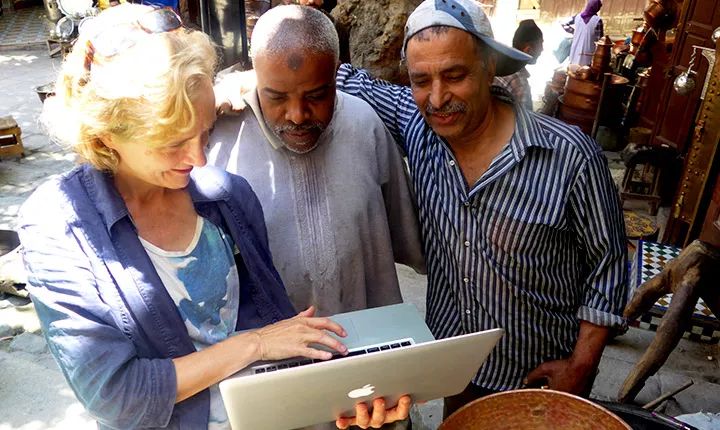
English professor and Fulbright scholar Betsy Bolton shares digital stories with some of her collaborators: Hamid and Mohammed, traditional artisans in the Fès medina.
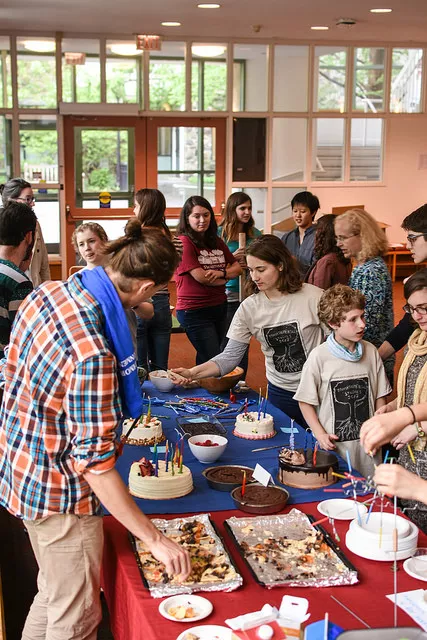
Faculty, staff and students celebrated the birth of the Environmental Studies major on May 5 with cake, t-shirts and nachos.
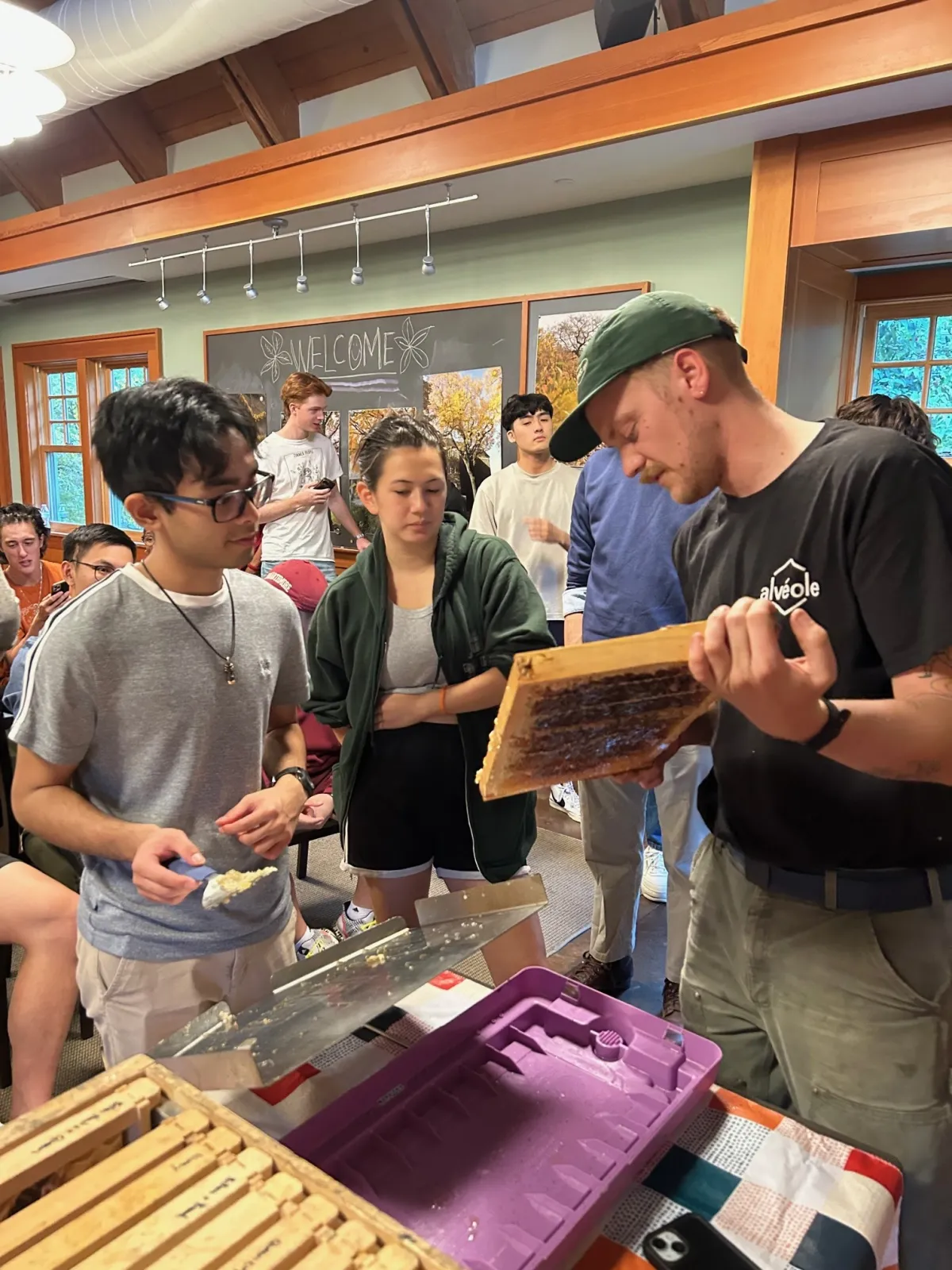
ENVS 009 visiting the beekeeper
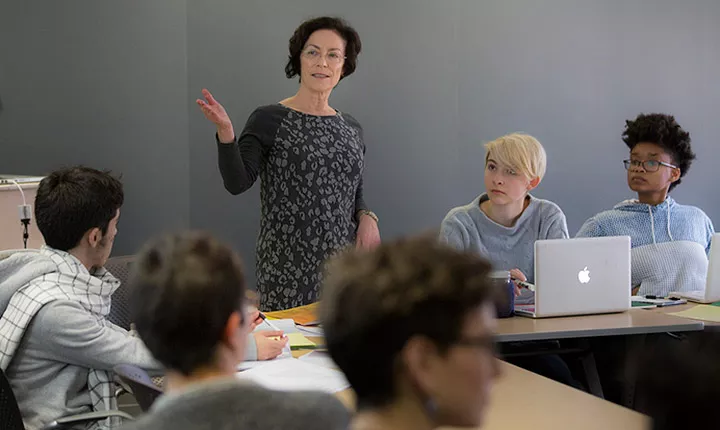
Giovanna Di Chiro is an internationally-renown scholar of environmental science and policy and the first full-time faculty member of the Program. Professor Di Chiro will be teaching ENVS 035/POLS 043B. Environmental Justice: Theory and Action and ENVS 043/ENGL 089/SOAN 020M Race, Gender, Class and the Environment.
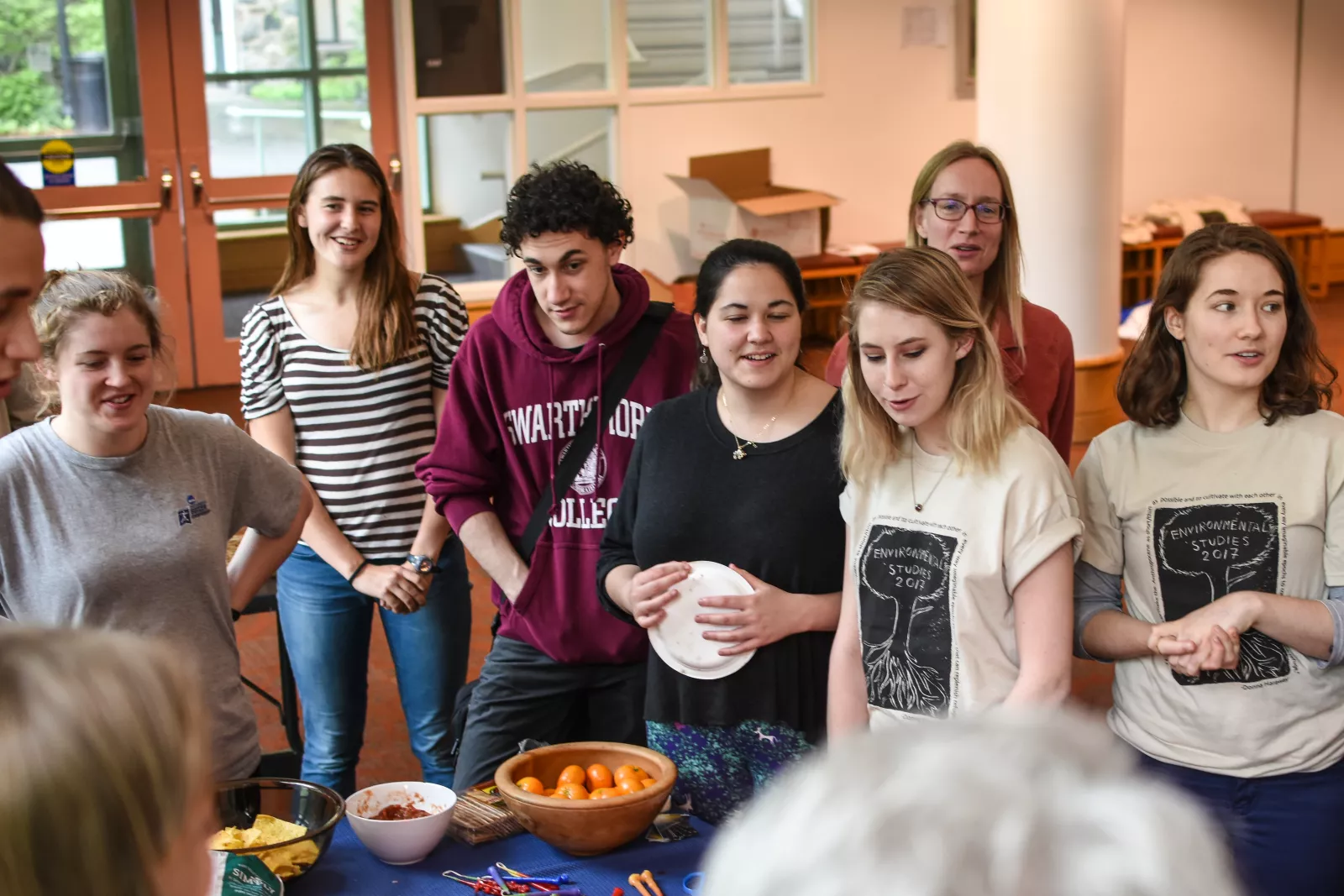
Another picture celebrating the zeroth birthday of the Environmental Studies major.
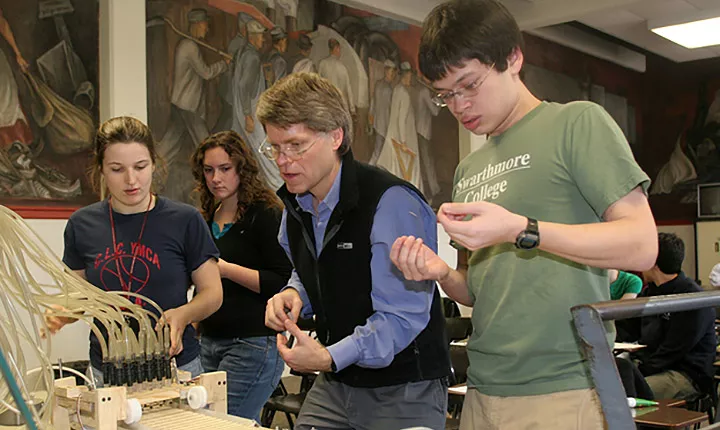
Engineering Professor Carr Everbach engages students in hands-on design. Professor Everbach is the program coordinator for the Environmental Studies program.

Chemistry and Environmental Studies Professor Chris Graves with his ENVS 001 students on a field trip to the Limerick Generating Station.
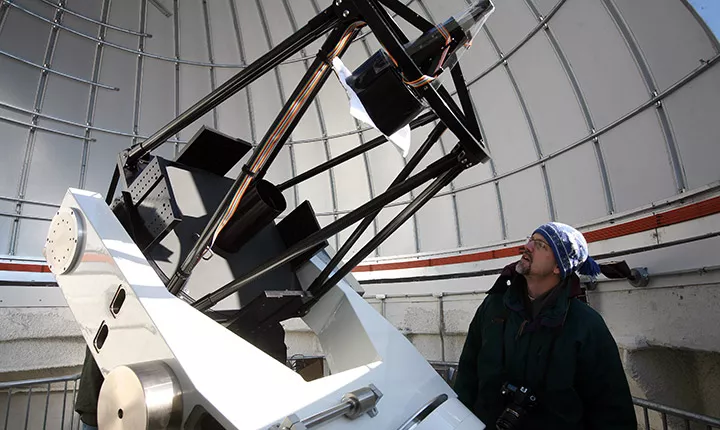
Eric Jensen is a professor of Astronomy.
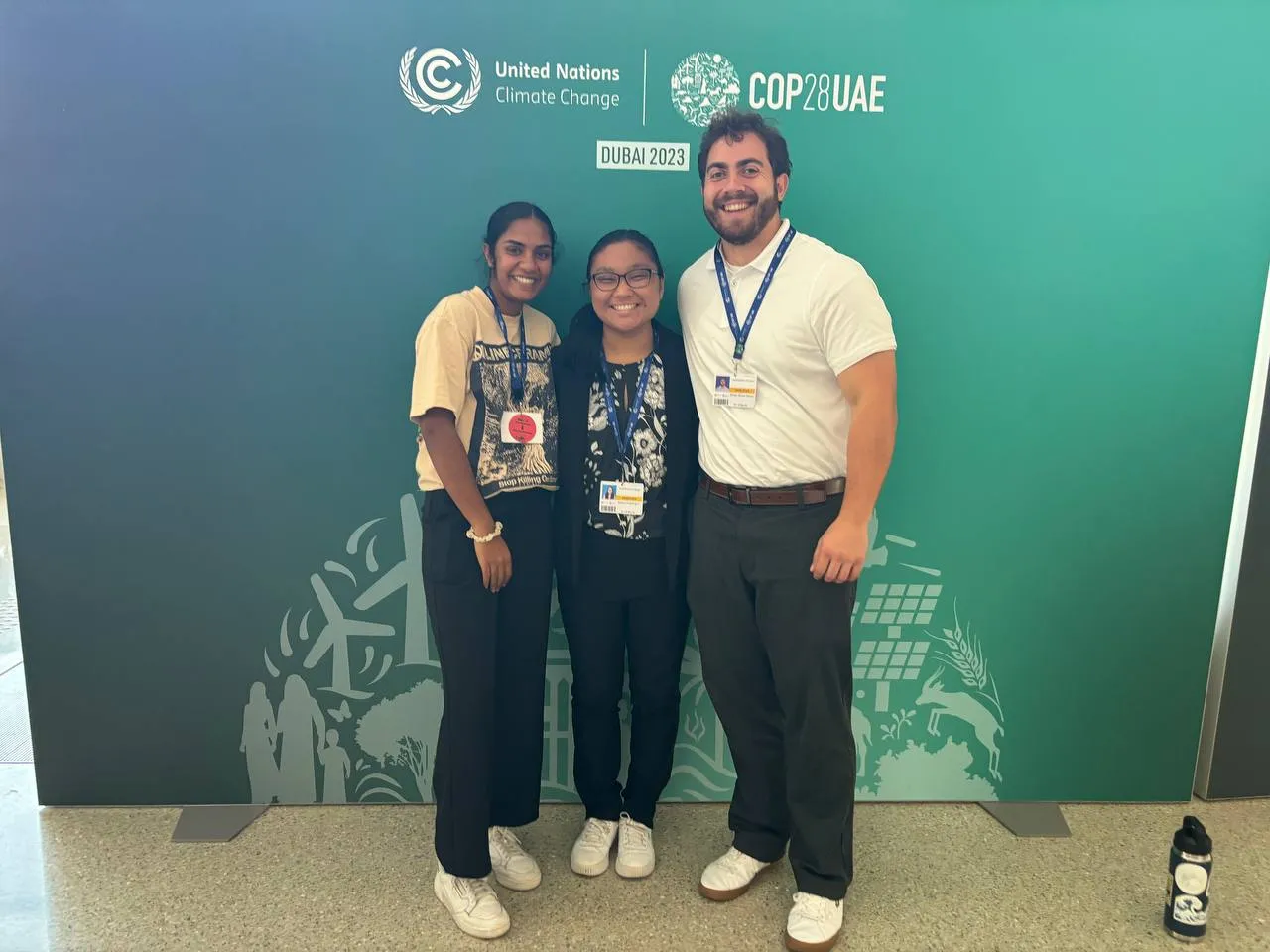
Swarthmore Student Delegation attending COP 28 in Dubai
Bird walk with Christian Cooper at the John Heinz National Wildlife Refuge
